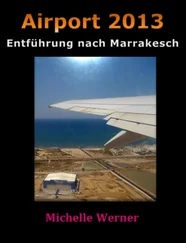My father had decided that cycling in cold or wet weather at my age was proof that I was breaking down, and the way he dealt with this was to say to me, over and over again, Are you crazy? Take the underground! They come every three minutes! But I didn’t want to take the underground. I did not want to take any public transportation. I did, at times, watch people go in and out of underground stations. I stood at the top and watched foot traffic. It wasn’t that I thought it was especially compelling to watch Berliners, it was how few of them there always were. Even at its most frenetic, Berlin always struck me as quiet, slow, and unmotivated. It seemed half-vaporized. Unless there was construction, I never saw a traffic jam. I never once witnessed a wave of people on their way to, or on their way home from, work. My father said he always got a free seat, or at least a healthy bit of space to stand, in the underground. I asked Trish why this was so. I knew Berlin had high unemployment, but even a city with high unemployment ought to have human congestion at nine a.m. and five p.m., if it has four or five million inhabitants. We were sitting in a café near our hotel when I asked this, coincidentally it was about nine in the morning and the streets were empty, except for a few fathers taking children to kindergarten on bicycles, heavily bundled up, skidding around the corner of a slippery and cold street. Maybe, now and again, someone rode by with a satchel that suggested a day of work lay ahead of them. The question made Trish unhappy. She hadn’t spoken much about her husband. I suppose I had begun to think that she didn’t much care for him, or that she didn’t mind that he had gone. Her husband hated Berlin, she said. He really hated it. He hadn’t ever been unemployed, she said, and for two years here he couldn’t find work. He’d quit his career to come with her. There was no other way to stay together. And there simply were no jobs for him in Berlin. He took German lessons, but they were expensive, and after a while he refused to spend money if he was not making any, even though Trish got a spousal allowance and money wasn’t a problem, and even though the State Department contributed to the costs of lessons for spouses. He never met anybody and didn’t go out, and slowly he started going a little crazy. We would, later that day, or perhaps it was the next day, go visit Trish’s place. It was up on a hill, on the top floor of a renovated old building — a converted and completely modernized attic that was large and airy — and it had a glass wall on the south side, so you could see all of the city. It felt vast. It had sloped white ceilings, full of skylights. The place was full of light. And it was mostly empty. It had three bedrooms, so the husband had an office. My father and Trish went to the kitchen, where she showed him her small wine collection. I went inside the husband’s office. Beside his desk was a large window looking west, over a small street and another tall building, though the building across the street didn’t have a penthouse conversion, nor did any of the others I could see from that window. This must have added, I felt, to his sense of disconnection — his palace overlooking the exotic-ordinary. Mostly, I could tell, he spent his time in the office to teach himself German and apply for jobs, or grow tired of the fact that no jobs existed for him in Berlin, or simply sorrow over the decision to move there with her. For two whole years, she said — back at the café, before we visited her apartment — he was unemployed, and this made him really depressed. She was about to say something else, but she stopped herself. She looked up and saw, presumably, the two of us listening very intently to her and realized that telling my father all this was one thing but telling me was something else entirely. Trish had a big sitting room, a dining room, plus a room that was about the size of the sitting room and dining room combined, and in it was a rented piano. When I saw that piano, I immediately beheld the husband’s madness, and I sat there, upon the bench, as he must have sat, and I played one low note over and over and over until Trish and my father came into the room with glasses of wine and my father asked, What are you doing? The room was big enough for a nicely sized cocktail party. I suspected that if there had been any, Trish’s husband spent them all either on the terrace, smoking cigarettes, if he smoked, or down the street at a bar, reading a book or a magazine. I like to think I’d be the kind of person who, in a situation like that of Trish’s husband, would learn how to play the piano, go for walks in snowy parks, or, in summer, swim in outdoor pools, put a towel down in the grass, and read The Iliad . But who knows. Anyway, the husband has found work in Munich. He now lives in a small apartment, and Trish has been spending most weekends there. In Munich, I assume, everyone goes to work at nine, the streets are filled with commuters, there is a common purpose.
I’ve never met anybody more knowledgeable about the world right now, politically, culturally, and economically, than Trish. It’s not because she has to know it all for her job. It’s because she wants to know it, because she wants a better job. Right now her work life is mostly administrative, office management, mundane consular work, visas, lost passports — drudgery, for someone of her intellect. There are also criminal cases, deaths, asylum seekers, receiving American VIPs at the airport, and sometimes they can be interesting. But she wants to be doing the very difficult work of diplomacy, she wants to be involved in crises, and take phone calls in the night, possibly work with spies, or become one. So, in addition to her administrative duties, she makes sure she is up to date and knowledgeable about everything presently happening in the world. Every morning she either writes up or reads a summary of all US-related news in the German papers, then she reads a summary of all US-related news in French papers, British papers, Chinese media, Russian media, then a summary of all news relating to the US internationally, in every jurisdiction, then a summary of all the major news stories around the globe — these are all internal reports that are available to State Department staff and other foreign services. At lunch, she watches news online. Now that her husband is in Munich, she volunteers her free weekday evenings to work cultural and diplomatic events — dinners, meetings, briefings — in order to make contacts. And she meets and talks to people who are up to date and knowledgeable about the world. She knows everything about everything, so long as it has just happened, is happening, or will happen within a month or two. There is not a single timely topic of discussion that she cannot speak of thoroughly. It is truly intimidating. The only way to surprise her, or tell her something she doesn’t already know, is to talk about something trivial or useless, like a story about billionaires who want to travel to the moon. She is not all that interested in the history of places that are not important to her, but if she can be convinced that information will deepen her understanding of current events, she will learn. She knew hardly anything about pre-twentieth-century European history, but when she and my father talked, she listened attentively, and while we were away, she got my father’s history of the Middle Ages overnighted to her from the US and read it in a few days. I overheard them discussing it at times during that last week. I could tell my father was grateful.
Two days after I rearranged and cleaned Miriam’s apartment, I returned. I went, again, by bicycle. It was a wet day, so the ride was sloshy and slow, I got sprayed by a few cars, crashed through countless deep puddles, and my pants, by the time I arrived, were not only soaking wet but spotted with oily, superblack gunk. I hitched my bike to a lamppost. My hands were numb, inside the gloves. My legs felt numb, because my pants were wet. But I also felt that pleasant energy you get after steady physical exertion. I looked up at Miriam’s windows. The apartment wasn’t her first apartment in Berlin, but she had lived there almost fifteen years.
Читать дальше











